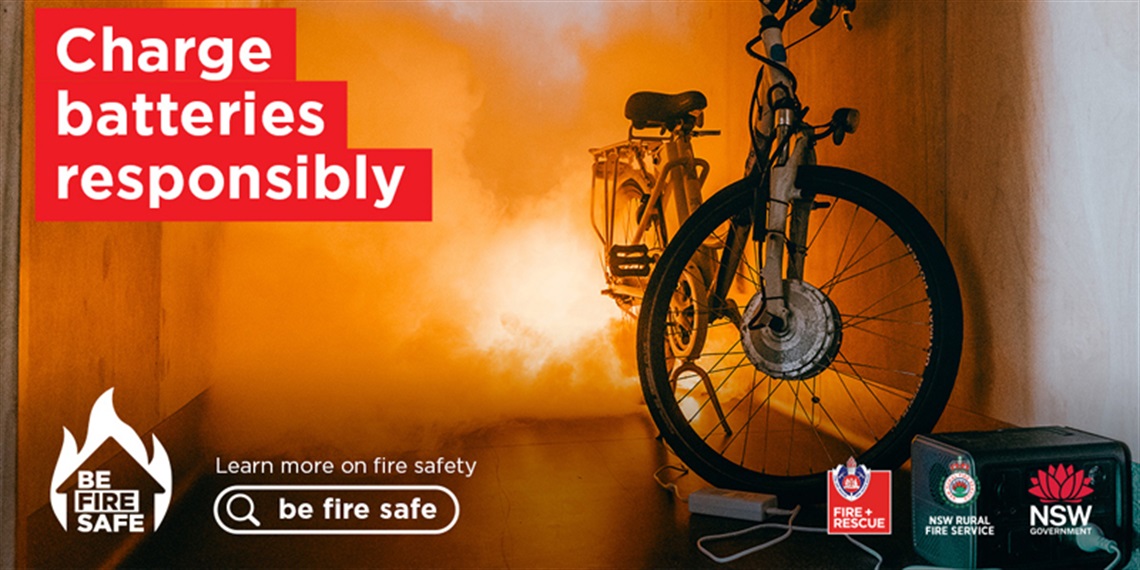
Lithium-ion batteries are the fastest growing fire risk in New South Wales. We can all prevent hazards by charging safely, being aware of warning signs, disposing of lithium-ion batteries correctly and knowing what to do if something goes wrong.
What are lithium-ion batteries?
Lithium-ion batteries are found in small portable devices such as phones, laptops and power tools, as well as in larger capacities such as e-bikes, e-scooters and cars. Lithium-ion batteries contain a massive amount of energy in a relatively small space. When lithium-ion batteries fail, that energy is rapidly released which can create explosions, highly toxic fumes and secondary ignitions even after the flames have been extinguished. Lithium-ion batteries are the fastest growing fire risk in New South Wales.
Tips when charging
- Have working smoke alarms in the rooms where you charge or store your devices
- Charge batteries on hard surfaces like concrete floors or tiles
- Don't charge batteries on surfaces like beds, sofas, or carpet
- E-scooters, e-bikes, and power-tools should be charged in the garage, shed or carport, away from living spaces and exits
- Charge devices when you are home and do not charge devices while you sleep
- Once a device has recharged fully, disconnect it from the charger
- Using a charger with the wrong power output (voltage and current), can cause damage to the battery or overheat it, which can cause a fire
- Don't charge batteries that have been exposed to heat or extreme temperatures
- Short-circuiting, battery cell malfunctions or system faults can lead to lithium-ion batteries catching fire
Disposal of batteries
- Lithium-ion batteries cannot be placed into home garbage or recycling bins as they pose a fire risk.
- Small, undamaged batteries (not swollen, punctured, or leaking, etc.) can be safely disposed at a battery recycling drop off point.
- When disposing, tape over battery terminals with clear adhesive tape before placing the battery carefully into a battery recycling collection bin
Information on where and how to dispose of used batteries can be found from:
- B-cycle: bcycle.com.au
- Community Recycling Centres (EPA): epa.nsw.gov.au
- Planet Ark: recyclingnearyou.com.au
- Mobile Muster: mobilemuster.com.au
- Australian Battery Recycling Initiative: batteryrecycling.org.au
Battery warning signs
Batteries that show any signs of damage should be disposed of carefully as they carry the risk of becoming involved in a fire.
Damaged batteries and battery-powered devices include:
- Batteries that show signs of swelling or bulging, leaking, cracks, dents, punctures, or crushing
- Overheated batteries that may have vapours or smoke
- Batteries that have gotten wet or have been in water
- Batteries that have been in or exposed to fire.
Finally, if your battery is on fire, evacuate the area and close doors if safe to do so, call Triple Zero (000) and seek urgent medical attention if you have been exposed to smoke or vapours.






